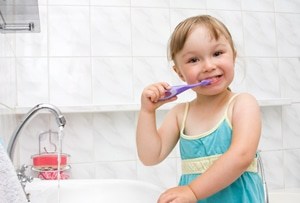 The need for dental assistants in the U.S. is expected to grow faster than average, according to the Bureau of Labor Statistics. That growth rate is predicted to be approximately 25 percent between 2012 and 2022.1 One branch of dentistry that is an option for students to explore is pediatric dental care. Assistants for pediatric dentists are also in demand, because the need to treat children and help prevent future dental problems is a major focus for the health care industry as well as parents.
The need for dental assistants in the U.S. is expected to grow faster than average, according to the Bureau of Labor Statistics. That growth rate is predicted to be approximately 25 percent between 2012 and 2022.1 One branch of dentistry that is an option for students to explore is pediatric dental care. Assistants for pediatric dentists are also in demand, because the need to treat children and help prevent future dental problems is a major focus for the health care industry as well as parents.
Pediatric dental assistants can be educators too
Students in a dental assistant program can choose to study pediatric dental care. They will focus their time on children and babies who have different dental issues than adults. Because young ones’ teeth are developing, they may require special treatment to combat imperfect development or growth, which is why the need for specialized training is important in this field. The primary responsibility of a pediatric dental assistant is to help during dental procedures. From sterilizing instruments to applying fluoride or sealant treatments, the assistant is an integral part in the procedure. Dental assistants are also often the first point of contact for parents in the dentist’s office, and may be charged with educating parents about proper dental hygiene for their little one.2 Another area of responsibility that pediatric dental assistants cover is showing children how to brush their teeth on their own. This includes stressing regular brushing and encouraging parents to take an active role in their child’s dental health. Pediatric dental assistants often get the chance to forge a relationship with the child this way, and usually accompany them into the exam room for their appointment.2
Tips for assistants working with children
Pediatric dental assistants have a great role in managing the anxiety of their young patients. To assist the dentist, they meet with the child and parents first to begin paperwork, explain any procedures that may be scheduled, and accompany the child into the exam room. However, most children are visibly anxious when they arrive for a dental exam, and assistants should be educated in the best ways to help the child manage that stress. Relaxation techniques are often helpful for children. The dental assistant can guide them through deep-breathing exercises, including asking the child to blow bubbles through a wand, or inflate a small balloon. Progressive muscle relaxation is another method that can help children calm down in stressful situations. With the direction of the assistant, the child can systematically tense and relax each muscle group, from toes to head, while they get comfortable in the exam chair.3 Another option for pediatric dental assistants when working with a young, stressed-out patient is to distract them, which can help minimize the child’s focus on their anxiety. Many dentists’ offices that serve children have toys available that they can bring with them into the exam room. The assistant can also distract their patient simply by chatting with them to refocus their attention as well as build trust and rapport. Visualization has also been found to be helpful for children. Assistants can ask the little one to imagine a beautiful place or a pleasant experience, like a trip to the beach or a birthday party. Asking questions about the imagery will help to lock it into the child’s mind and reduce their tension. Even giving the patient a distracting task like counting ceiling tiles can work. Television, videotapes and games are all other options to help the dentist or assistant create a stress-free environment for their young patient. Pediatric dental assistants should be well versed in different ways to distract and help relax children in their care.3 1 “Dental Assistants,” Bureau of Labor Statistics.gov, http://www.bls.gov/ooh/healthcare/dental-assistants.htm 2 “Pediatric Dentistry Assistant Career Guide,” Health School Guide.net, http://www.healthschoolguide.net/health-careers/pediatric-dentistry-assistant/ 3 Efron, Lisa A., PhD, “Five Tips for Managing Pediatric Dental Anxiety,” May 31, 2005, Dentistry Today.com, http://www.dentistrytoday.com/pediatric-dentistry/1576



